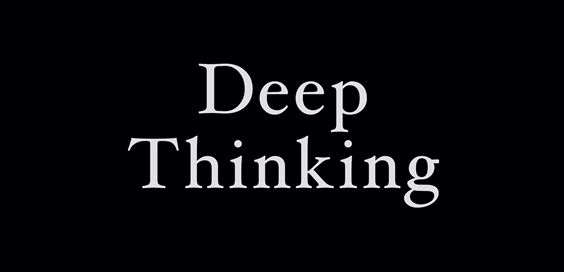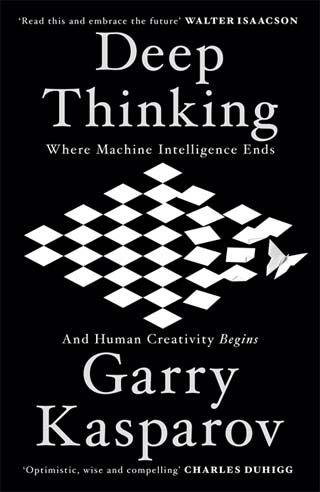Deep Thinking by Garry Kasparov – Review

By Joe Forshaw
Garry Kasparov has been a pre-eminent figure in the world of chess since becoming a grandmaster in 1980 at the age of 17. He was the undisputed chess world champion from 1985 to 1993 and the classical world champion from 1993 to 2000. Born in what is now Azerbaijan he currently lives in New York and is a business speaker, global rights activist and the author of How Life Imitates Chess and Winter is Coming.
Noting the author’s credentials, the reader may be excused from thinking that the pages of this book would be full of records of great chess matches of the past, such as the great cold war clash between Fischer and Spassky and be resplendent with notations such as Q-KR5 or ‘ black to mate in 3’.
Fortunately this is not the case as this book is about much more than the game of chess, it is about the future; our future.
 “Dangers”
“Dangers”
The book records the trials and tribulations of the author from 1985 when simultaneously faced with 32 of the leading chess computer manufacturers’ top chess playing models and defeating them all up until 1996 when Deep Blue, the IBM chess playing computer, became the first programmed device to defeat Kasparov, who was at the time the reigning Chess World Champion.
The book discusses in great detail the implications of the advancement in computing technology through this period. It asks if the term artificial intelligence (AI) is a viable concept and questions the ability or otherwise of an ‘intelligence’ building something more intelligent than itself.
The book discusses the dangers inherent in such an event, making reference to Hal 9000 the computer in 2001: A Space Odyssey, that assumes control of the mission. It asks the question ‘Do we know where we are going?’
“Robotics revolution”
The text has its frivolous moments, referencing as it does Douglas Adams’s Hitchhiker’s Guide to the Galaxy and its famed ‘answer to everything’ – 42. This reference may seem to be a bit of a distraction but it serves to make the point that you may never actually know what the question is.
But whatever the question is it has to be acknowledged that as per the conclusion of the book ‘we are on the cusp of a robotics revolution in the work place and yet there is a glaring absence of coordinated thinking on the topic, we are sleep walking along as we did on the Internet’.
The book can be taken as a metaphor for the passage of time, an overview of human’s problems with progress, from Luddites to laptops and, indeed, a philosophical compendium of what the computerised future may hold for mankind.
‘Deep Thinking: Where Machine Intelligence Ends and Human Creativity Begins’ by Garry Kasparov is published by John Murray, £20 hardback









